GitHub integration#
The GitHub integration incorporates Codacy on your existing Git provider workflows by reporting issues and the analysis status directly on your pull requests.
When you add a new repository, Codacy sets the GitHub integration using the default settings for your organization. You can then customize the settings for the repository.
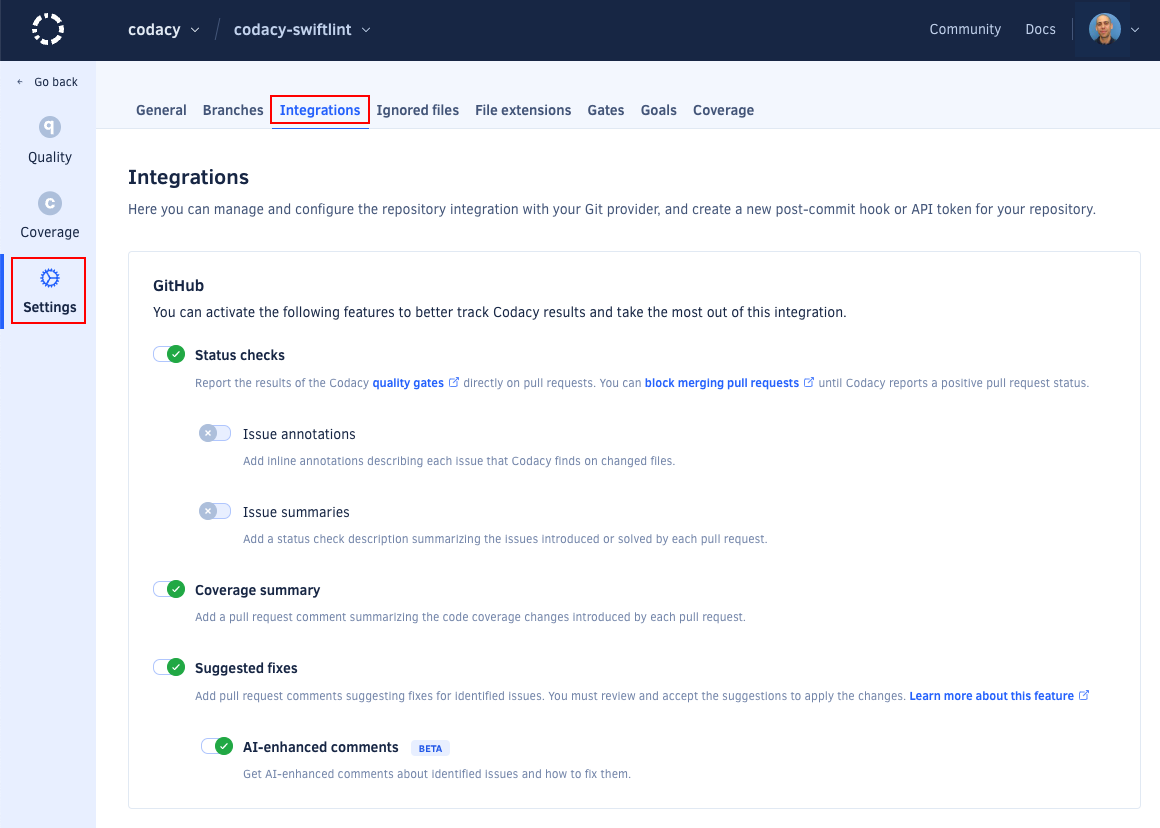
Configuring the GitHub integration#
To configure the GitHub integration, open your repository Settings, tab Integrations.
Depending on the options that you enable, Codacy will automatically update pull requests on GitHub with extra information when accepting pull requests.
Tip
You can apply the default Git provider integration settings to all repositories to ensure that your repositories all share the same settings.
Status checks#
Adds a report to your pull requests showing whether your pull requests and coverage are up to standards or not as configured on the quality gate rules for your repository. You can then optionally block merging pull requests that aren't up to standards.
Important
To get a status for coverage you must also:
- Add coverage to your repository
- Enable the rule Diff coverage is under or Coverage variation is under on the pull request quality gate.

Issue annotations#
Adds annotations on the lines of the pull request where Codacy finds new issues. Codacy maps the severity of the issues reported by the tools to the severity levels of the annotations. To enable this option, you must enable Status checks first.
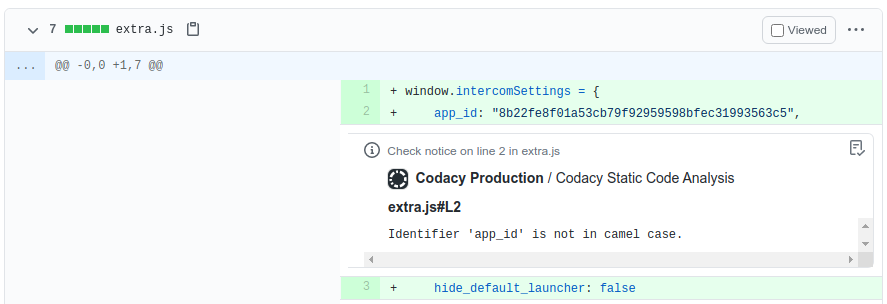
Issue summaries#
Shows an overall view of the changes in the pull request, including new issues and metrics such as complexity and duplication. To enable this option, you must enable Status checks first.
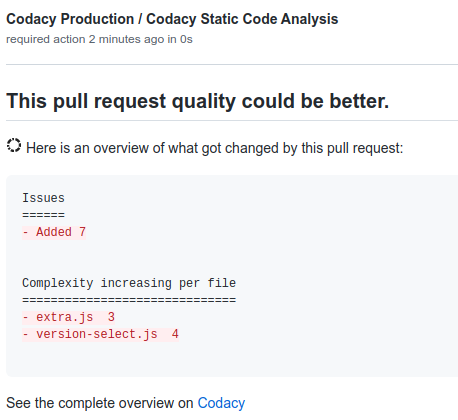
Coverage summaries#
Adds a pull request comment showing an overall view of the coverage metrics for the pull request, including details about the data that Codacy used to calculate the coverage variation and diff coverage metrics.
When there are new coverage results, Codacy updates the last coverage summary comment if it's included in the last 5 comments of the pull request. Otherwise, Codacy creates a new comment.
Important
To get coverage summaries you must also add coverage to your repository.
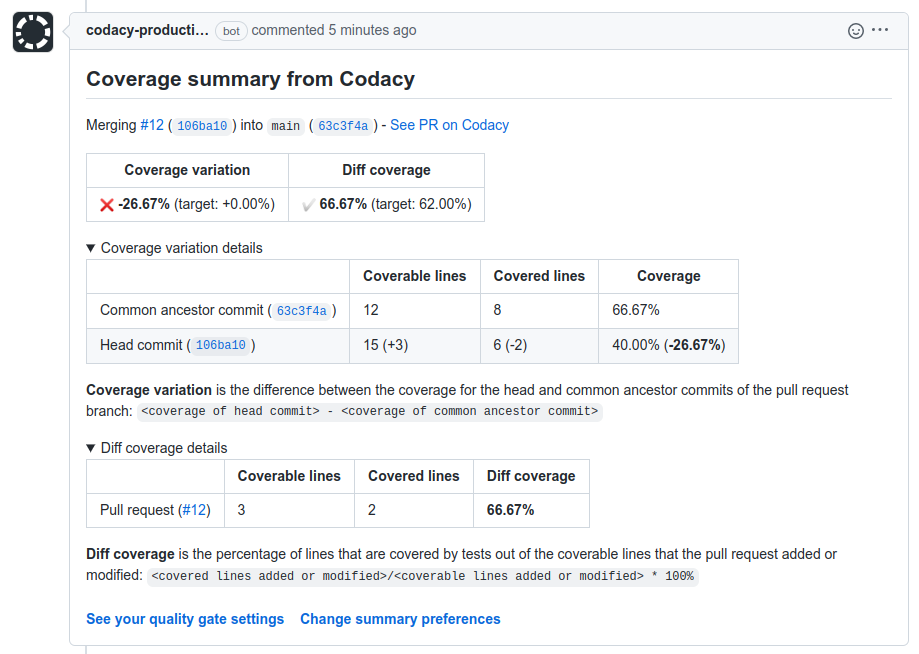
Note
This feature is only supported on GitHub and GitLab Cloud.
Suggested fixes#
This feature is only available on paid plans
Adds comments on the lines of the pull request where Codacy finds new issues with suggestions on how to fix the issues. Codacy doesn't apply any changes automatically. To apply the changes, manually review and accept the suggestions.
Tip
Enable also AI-enhanced comments to get ready-to-commit AI-generated fixes.
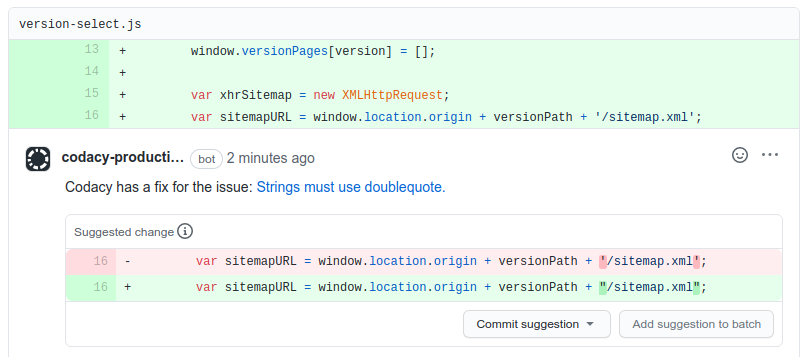
AI-enhanced comments#
Adds AI-enhanced comments, providing insights and ready-to-commit AI-generated fixes for identified issues in cases where tool-suggested fixes are not supported. To enable this option, you must enable Suggested fixes first.
Note
- This feature is compatible with most programming languages and requires no additional setup.
- Comments are generated using the description of the static analysis issue, information about the tool that detected the issue, and a few lines of surrounding code to provide the AI with extra context and improve its accuracy.
- This feature leverages the OpenAI API. No information is shared with other third parties or used to train AI models. Please refer to the OpenAI API data usage policies for more information.
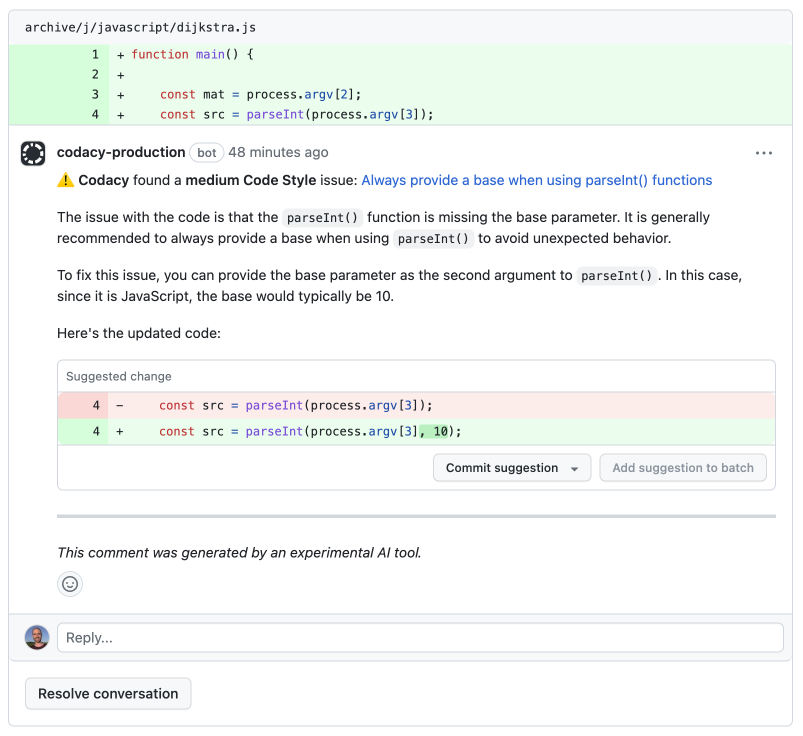
Generating automatic pull request summaries#
This is a preview feature
This is an upcoming Codacy feature. If you're interested, contact support@codacy.com for early access.
Codacy can provide a clear, high-level summary of the code changes introduced by a pull request, based on the committed code. Codacy generates an overview of the changes in the pull request so that any reviewer can understand its intent and impact.
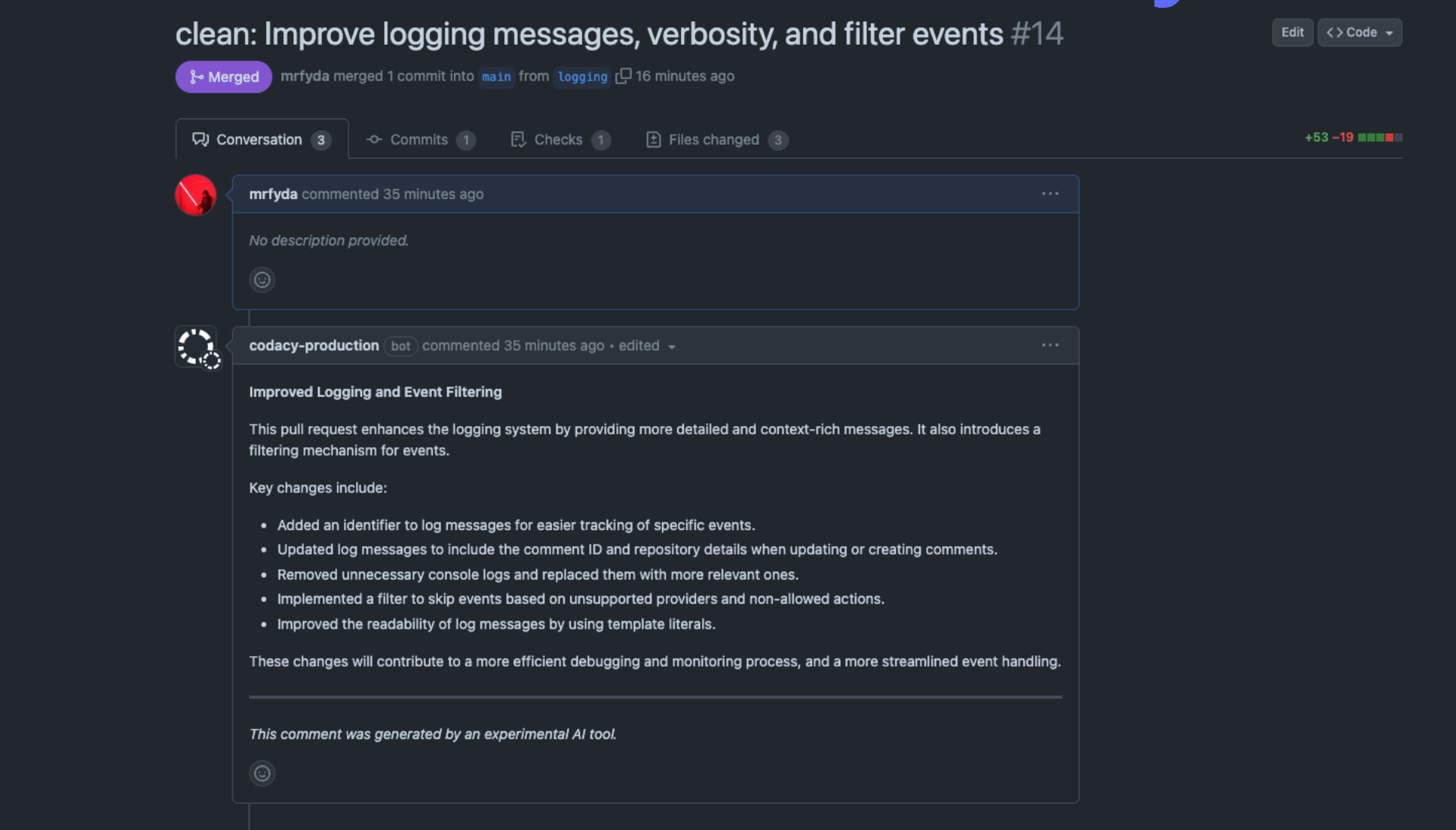
Note
- This feature uses only AWS services within Codacy's existing infrastructure. No information is shared with any other third party or used to train AI models.
- Summaries are generated using the pull request title, branch name, commit messages, and changes diff.
To enable this feature, add the following to the Codacy configuration file .codacy.yaml in the root of your repository:
---
reviews:
high_level_summary: true
You can also enable this feature across your organization by creating the above file in the root of a repository named .codacy. This file will be used as the default configuration for all repositories in the organization and overridden by repository-specific configuration files.
Once enabled, summaries will be created when pull requests are opened and updated at each commit to reflect any changes to the pull request.
Pull requests opened by bots, such as Dependabot, are ignored.
If you see duplicated comments posted by Codacy on the same pull request, please ensure that your repository only has one configured webhook for Codacy.
See also#
Share your feedback 📢
Did this page help you?
Thanks for the feedback! Is there anything else you'd like to tell us about this page?
255 characters left
We're sorry to hear that. Please let us know what we can improve:
255 characters left
Alternatively, you can create a more detailed issue on our GitHub repository.
Thanks for helping improve the Codacy documentation.
Edit this page on GitHub if you notice something wrong or missing.
If you have a question or need help please contact support@codacy.com.